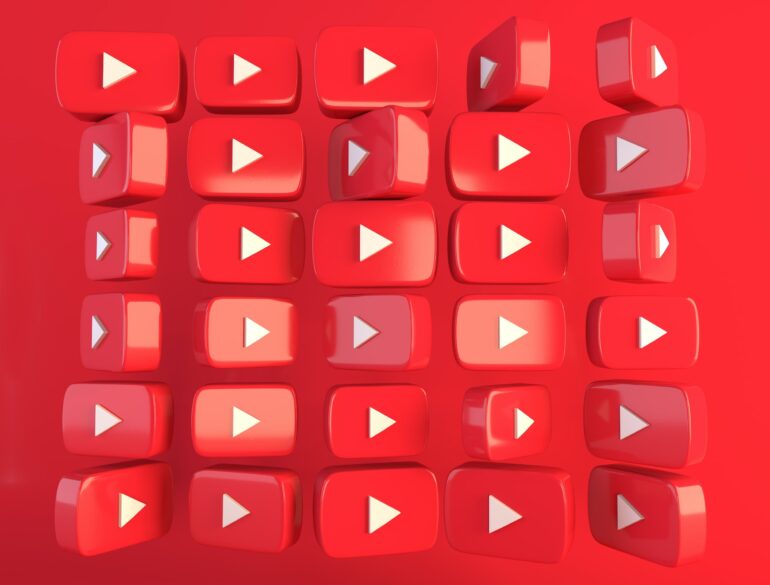TL;DR:
- YouTube unveils the ‘Music AI Incubator’ initiative in collaboration with Universal Music Group (UMG).
- A diverse group of artists, songwriters, and producers will explore generative AI experiments to drive creative innovation.
- UMG and YouTube prioritize building a secure ecosystem that empowers artists while embracing AI advancements.
- YouTube’s commitment includes responsible integration, safeguards for AI tools, and enhanced content policies.
- Google’s discussions with UMG signal the potential for innovative licensing models around AI-generated music.
Main AI News:
In a groundbreaking move, YouTube has unveiled its cutting-edge initiative, the ‘Music AI Incubator,’ marking a pivotal collaboration with industry titan Universal Music Group (UMG). The announcement was disclosed through a comprehensive blog post by YouTube’s CEO, Neal Mohan, which delved into the company’s strategic approach to the dynamic realm of AI-infused music.
Mohan emphasized that the inception of the ‘Music AI Incubator’ will play a pivotal role in shaping YouTube’s strategy as it engages with some of the music industry’s most inventive artists, songwriters, and producers. The scope of this program is extensive, encapsulating a diverse spectrum of cultures, genres, and expertise. “The incubator will contribute significantly to YouTube’s ongoing innovation by fostering insights from the avant-garde AI experiments and research being pioneered within the platform,” explained Mohan. He further outlined the company’s intentions to extend this collaborative platform to encompass a broader array of partners across the music industry.
UMG, a trailblazer in the music industry, is set to be at the helm of this transformative initiative during its formative stages. Sir Lucian Grainge, the visionary leader of UMG, echoed this sentiment in his own blog post, cementing the partnership’s significance. Grainge highlighted the core tenets of this partnership, which involve the establishment of a secure, ethical, and lucrative ecosystem for music and video content. This vision places paramount importance on empowering artists and songwriters to maintain their creative autonomy, decision-making power, and equitable compensation.
The focal point of this collaboration revolves around a dynamic group of artists, songwriters, and producers, collectively spearheading AI-related musical exploration. As they delve into the avant-garde world of AI tools and products, their valuable insights and feedback will play a pivotal role in refining and optimizing these resources. Grainge articulated a palpable sense of optimism regarding the impact of this collaborative journey on the music landscape.
Grainge conveyed, “Through this collaborative voyage, we as a music community are poised to ethically harness the incredible potential of AI, fostering its integration for the greater benefit of the entire creative ecosystem.” He acknowledged that the journey may be replete with challenges, but he drew inspiration from music’s history of collaborative and competitive progress. From historical call-and-response traditions to contemporary music battles, the spirit of dynamic exchange has driven creative advancement.
This milestone announcement follows closely on the heels of reports about Google’s deliberations with UMG concerning innovative licensing models, particularly in the realm of AI-generated music and ‘deepfake’ compositions. The confluence of Google’s technological prowess and UMG’s industry leadership is anticipated to catalyze advancements that are poised to redefine music creation and consumption.
Mohan’s blog post is structured around three foundational principles that underpin YouTube’s approach to musical AI technologies. First and foremost is a commitment to responsible integration in tandem with music partners. This involves nurturing the ‘Music AI Incubator’ and similar initiatives. The second principle centers on ensuring that AI technologies are equipped with the requisite safeguards, while simultaneously unlocking new avenues of opportunity for music partners who choose to engage with them. Mohan subtly alluded to the imminent evolution of YouTube’s Content ID rights-management system.
Lastly, Mohan underscored the importance of scaling YouTube’s trust and safety measures, as well as refining its content policies. The versatile potential of generative AI necessitates a methodical approach that aligns with the vast expanse of creative expression. Mohan acknowledged the multifaceted challenges inherent in the AI landscape, including copyright issues and misinformation. However, he emphasized YouTube’s unwavering commitment to leveraging AI-powered technology for the protection and well-being of its global community, encompassing viewers, creators, artists, and songwriters.
Conclusion:
This groundbreaking collaboration between YouTube and Universal Music Group represents a significant leap in harnessing AI’s potential for music creation and distribution. The ‘Music AI Incubator’ initiative paves the way for a new era of creative exploration, where artists and technology converge to shape the future of music. This partnership also signals the industry’s recognition of AI’s transformative impact, setting the stage for innovative licensing models and an ecosystem that prioritizes artist autonomy and creative integrity. The music market is poised to experience a paradigm shift as AI-infused music becomes an integral part of the industry’s landscape.

